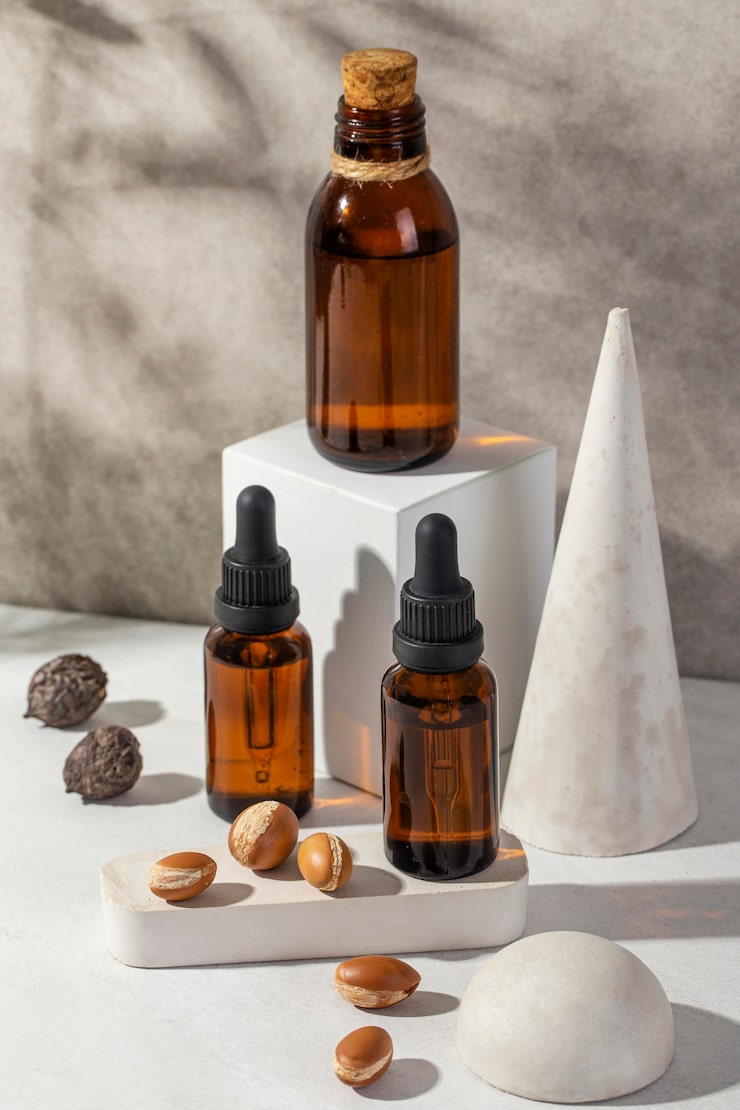Everyone has felt pain at some point—anything from a stiff muscle to a pounding headache. Instead of reaching for pills every time, consider trying natural essential oils.
This guide looks at the qualities of several essential oils and explains safe ways to use them as alternatives to conventional painkillers. Let’s take a closer look.

White Camphor Essential Oil
White camphor oil, the safe variety for aromatherapy and cosmetics, comes from the camphor tree’s wood and has a fresh, invigorating scent. It’s known for anti-inflammatory and pain-relieving effects, and it can boost circulation to speed healing. When applied to the skin it often feels cool at first, then warm. A small study with nine adults found this cooling-then-warming effect, along with better blood flow, made white camphor oil an effective natural pain reliever. For topical use, dilute it in a carrier oil like coconut or almond—about 3 drops of camphor oil per teaspoon of carrier oil. You can also add it to a warm bath or use it in a diffuser.
Eucalyptus Oil
Eucalyptus oil has a fresh scent and strong healing properties. Its main active compound, eucalyptol, offers anti-inflammatory and analgesic effects, making it useful for headaches, muscle tension, and joint discomfort. One study found inhaling eucalyptus reduced pain and lowered blood pressure more than a placebo. To use on the skin, dilute eucalyptus oil (3–5 drops per teaspoon of carrier oil) and gently massage into the sore area.
Lemongrass Essential Oil
Lemongrass oil, with its bright citrus scent, is extracted from the plant’s leaves and stalks. It contains compounds like geraniol, citral, and geranyl acetate, which have anti-inflammatory effects that can ease muscle aches, joint pain, and headaches. A study in the Journal of Pharmaceutical Science & Research reported mild reductions in arthritic pain after daily application for a month in 30 participants, suggesting it can be helpful for older adults seeking natural relief. Always dilute lemongrass oil before applying. For headaches, massage the diluted oil onto your temples and breathe deeply.
Bergamot Essential Oil
Bergamot oil has an uplifting citrus aroma and is commonly used in aromatherapy. It has analgesic and anti-inflammatory properties supported by multiple studies. You can inhale it or apply it topically (always diluted). Bergamot can help lower inflammation, calm the senses, and ease muscle aches, headaches, and nerve pain. For quick relief from a headache or sinus congestion, add a few drops to a diffuser or inhale steam with a drop or two in hot water.
Clove Essential Oil
Clove oil, made from the clove bud, has a warm, spicy scent and strong pain-relieving power thanks to eugenol, which reduces inflammation and can numb the applied area. It’s often used for toothaches, joint pain, muscle aches, and headaches via massage or aromatherapy. For a toothache, mix a few drops of clove oil with 1 teaspoon of olive oil, soak a cotton swab, and apply it gently to the sore tooth—relief may last 2–3 hours. Repeat if needed, but avoid swallowing the oil to prevent unwanted side effects.
Precautions When Using Essential Oils for Pain Relief
– Dilute before use: Always mix essential oils with a carrier oil for topical application to avoid irritation. A common ratio is 3–5 drops of essential oil per teaspoon of carrier oil, though this can vary by oil and purpose.
– Patch test first: Apply a small amount of the diluted oil to a hidden patch of skin and wait 24 hours. If you see redness or irritation, stop using it and seek advice.
– Know possible interactions: Some oils contain linalool (found in bergamot and rose geranium) and can cause reactions in sensitive people—always patch test.
– Pregnancy: Certain oils, such as lemongrass and clove, aren’t recommended during pregnancy. Check with your healthcare provider before using any essential oil while pregnant.
– Children: Some oils are unsafe for young children, especially those under 2 years. Talk to a pediatrician or certified aromatherapist before using oils near young children.
– Other safety tips: Store oils in a cool, dark place away from sunlight. Keep them out of reach of children and pets. Avoid contact with eyes and mucous membranes. If you have a medical condition or take medications, consult your healthcare provider, as some oils can interact with drugs or worsen conditions. If you experience any adverse reaction, stop using the oil and seek medical advice.